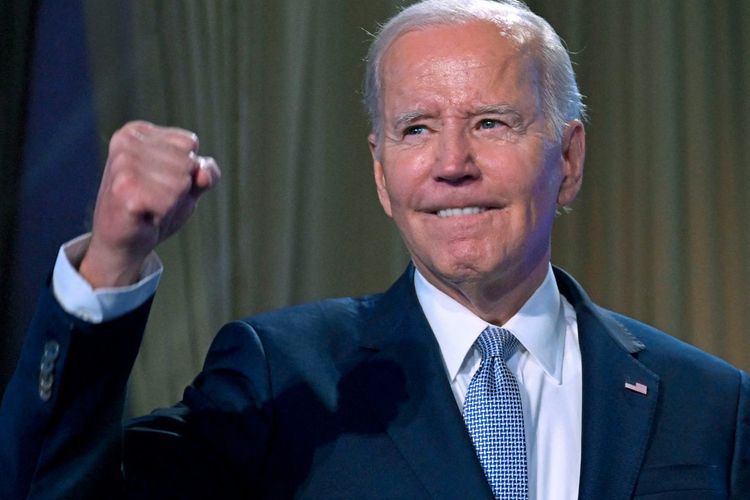
US Senate Passes Bipartisan Debt Ceiling Bill, Ensuring Economic Stability and Averting Default
Legislation raises borrowing limit, sets spending caps, and receives wide support from lawmakers
The US Senate's recent passage of the debt ceiling bill marks a significant milestone in the resolution of a prolonged and potentially catastrophic political impasse. This breakthrough comes at a crucial moment, just days before the US Treasury projected it would exhaust its cash reserves and risk defaulting on its financial obligations. The bill's approval, with a commanding vote of 63 to 36, reflects a remarkable show of bipartisan support, underscoring the importance of averting a first-ever debt default in the world's largest economy.
The consequences of a US debt default would have been far-reaching and severe, with profound implications for the global economy and financial markets. The bill's passage brings much-needed stability and reassurance to investors, businesses, and individuals who were anxiously monitoring the situation. It signifies a commitment to upholding the nation's financial credibility and ensuring the smooth functioning of the economy.
President Joe Biden hailed the Senate's decision as a testament to the resilience and unity of the American people. In a statement following the vote, he emphasized the significance of preventing a default and reiterated the nation's commitment to meeting its financial obligations. The bipartisan support for the bill demonstrates that, despite political differences, lawmakers recognize the critical importance of preserving economic stability and safeguarding the nation's reputation.
The debt ceiling bill raises the borrowing limit until 2025, providing an extended period of financial certainty. This alleviates concerns about the immediate risk of default and allows the government to continue meeting its financial obligations. In addition to the debt limit increase, the bill also establishes spending caps for the next two years, imposing fiscal discipline and creating a framework for responsible budget management.
The passage of this bill comes after intense negotiations between House Speaker Kevin McCarthy's allies and the White House. Both sides worked diligently to address concerns and find common ground. The resulting agreement includes provisions that address various priorities, such as work requirements for federal aid recipients, a two-year government spending cap, and the reallocation of unspent COVID relief funds. These compromises reflect the delicate art of negotiation and the need to balance competing interests while safeguarding the nation's financial stability.
With the debt ceiling crisis averted, attention now turns to the future of fiscal policy and budget appropriations. Lawmakers will engage in discussions to determine the allocation of funds within the spending caps for the upcoming year. These deliberations will shape the nation's financial landscape and determine the priorities for government spending. The decisions made during this process will have far-reaching implications for various sectors, including defense, infrastructure, healthcare, and social programs.
The successful resolution of the debt ceiling crisis demonstrates the resilience of the US political system and its ability to address significant challenges. It serves as a reminder that, even in times of political polarization, lawmakers can come together to prioritize the nation's economic well-being. Moving forward, it is imperative for policymakers to maintain a responsible and sustainable approach to fiscal management. This includes addressing long-term fiscal challenges, ensuring transparency in budgetary decision-making, and fostering economic growth that benefits all Americans.
The passage of the debt ceiling bill by the US Senate not only avoids an immediate financial crisis but also provides a foundation for continued economic stability. By upholding the nation's financial commitments, lawmakers have sent a positive signal to the global community and reaffirmed the strength of the US economy. As the nation looks ahead, the focus will shift to broader economic challenges and opportunities, including job creation, investment, and sustainable growth. The resolution of the debt ceiling crisis serves as a reminder of the importance of fiscal responsibility and the need for collaboration to overcome future challenges.
Read More
-
GPIQ ETF Price Forecast: Can a 10% Yield at $52 Survive the Next Nasdaq Selloff?
09.02.2026 · TradingNEWS ArchiveStocks
-
XRP ETF Price Forecast: XRPI at $8.32, XRPR at $11.86 as $44.95M Inflows Defy BTC and ETH Outflows
09.02.2026 · TradingNEWS ArchiveCrypto
-
Natural Gas Futures Price Forecast: Will The $3.00 Floor Hold After The $7 Winter Spike?
09.02.2026 · TradingNEWS ArchiveCommodities
-
Stock Market Today: Dow Back Under 50K While S&P 500 and Nasdaq Push Higher as Gold Reclaims $5,000
09.02.2026 · TradingNEWS ArchiveMarkets
-
USD/JPY Price Forecast: Can Bulls Clear 157.5 Without Triggering a 160 Intervention Line?
09.02.2026 · TradingNEWS ArchiveForex



















